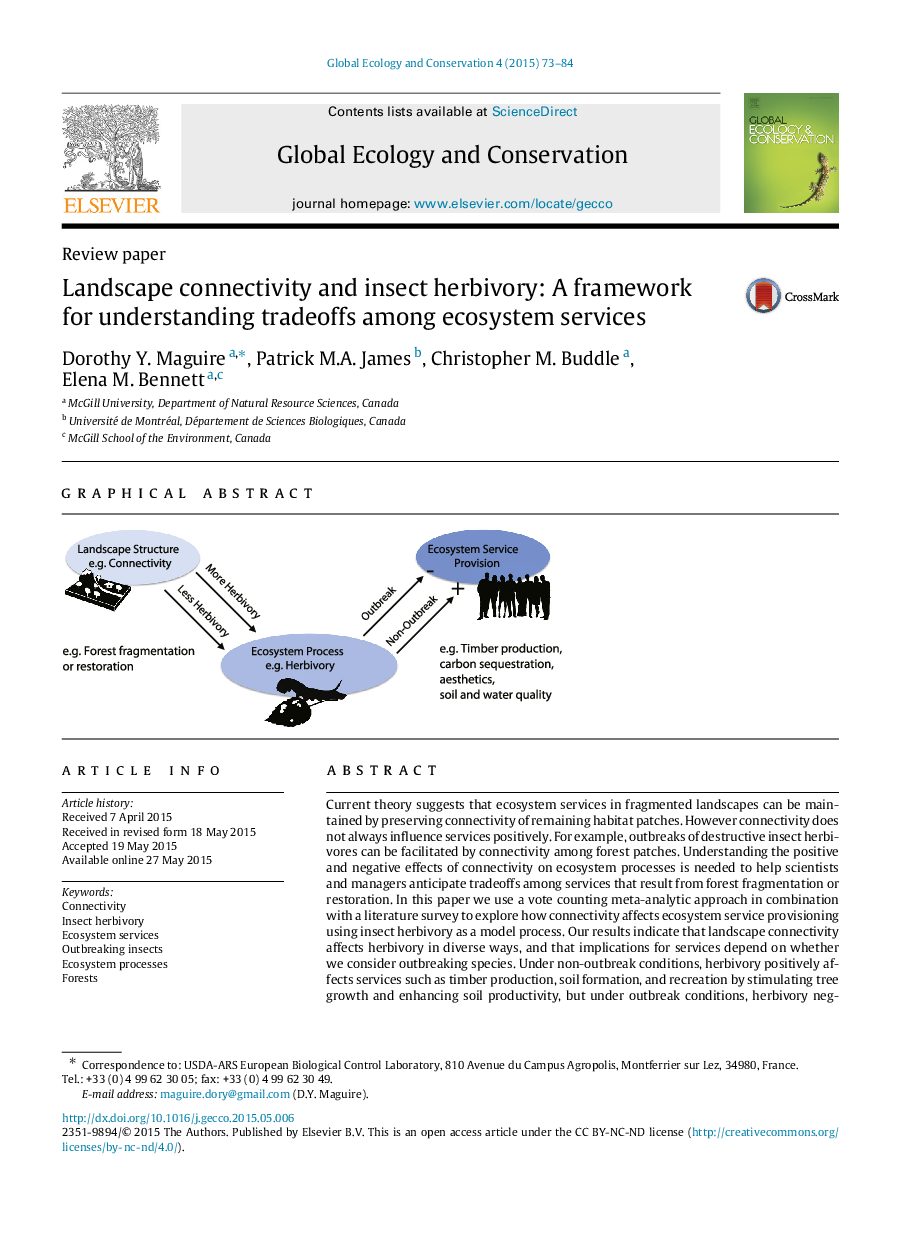| Article ID | Journal | Published Year | Pages | File Type |
|---|---|---|---|---|
| 4379483 | Global Ecology and Conservation | 2015 | 12 Pages |
Current theory suggests that ecosystem services in fragmented landscapes can be maintained by preserving connectivity of remaining habitat patches. However connectivity does not always influence services positively. For example, outbreaks of destructive insect herbivores can be facilitated by connectivity among forest patches. Understanding the positive and negative effects of connectivity on ecosystem processes is needed to help scientists and managers anticipate tradeoffs among services that result from forest fragmentation or restoration. In this paper we use a vote counting meta-analytic approach in combination with a literature survey to explore how connectivity affects ecosystem service provisioning using insect herbivory as a model process. Our results indicate that landscape connectivity affects herbivory in diverse ways, and that implications for services depend on whether we consider outbreaking species. Under non-outbreak conditions, herbivory positively affects services such as timber production, soil formation, and recreation by stimulating tree growth and enhancing soil productivity, but under outbreak conditions, herbivory negatively affects services by reducing timber yields and the aesthetic value of forests. We present a framework that shows herbivory is an important mechanism through which connectivity affects ecosystem services. Using case studies we demonstrate the applicability of the framework to management of two forest insect pests: the mountain pine beetle and forest tent caterpillar.
Graphical abstractFigure optionsDownload full-size imageDownload as PowerPoint slide
